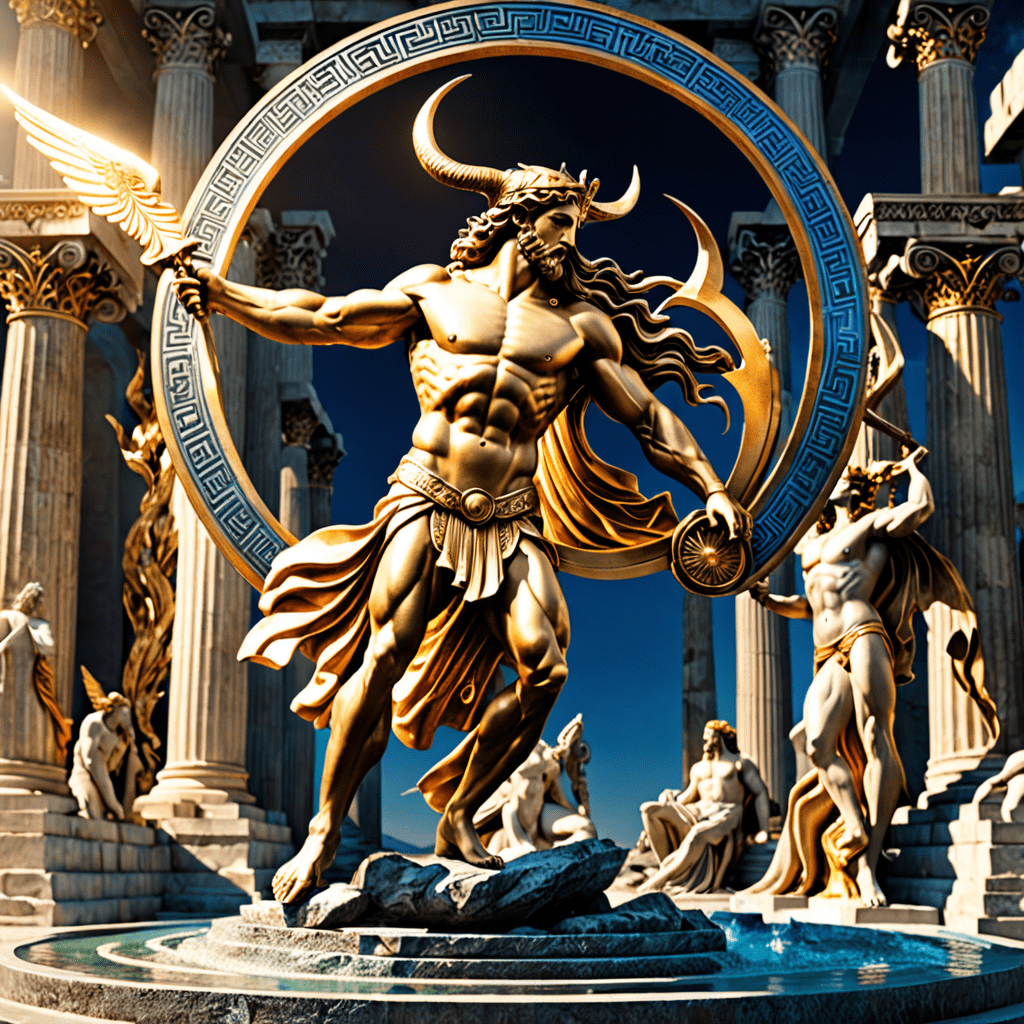The Symbolism of Earth in Greek Mythology
In Greek mythology, the natural elements hold deep symbolic meanings. Earth, or Gaia, is a fundamental element representing fertility, stability, and the origin of life. Let’s delve into the symbolism of Earth in Greek mythology:
The Primordial Goddess: Gaia
Gaia, the personification of Earth, is revered as the ancestral mother of all life. She embodies nourishment, growth, and the foundation of existence. In Greek mythology, Gaia is considered the primordial deity from whom all life emerged, making her an essential symbol of creation and sustenance.
The Nurturing Mother
Earth in Greek mythology is portrayed as a nurturing mother who provides sustenance to all living beings. Just as the Earth provides fertile soil for crops to grow, Gaia symbolizes abundance, fertility, and the cycle of life. The Greeks respected and honored Earth as the ultimate source of nourishment and life-giving energy.
Symbol of Stability and Balance
Greek culture viewed Earth as a symbol of stability and groundness. Just as the Earth serves as a firm foundation for all life, it signifies security, rootedness, and resilience. The image of Earth as a stabilizing force echoes throughout Greek mythology, emphasizing the importance of balance and harmony in the natural world.
The Connection to the Underworld
In Greek mythology, the Earth also symbolizes the connection between the living world and the realm of the dead. It is believed that the entrance to the Underworld, where Hades reigns, is located deep within the Earth. This dual representation of Earth as a source of life and a pathway to the afterlife highlights its significance as a transitional element in Greek cosmology.
In conclusion, the symbolism of Earth in Greek mythology goes beyond being a mere physical entity. It embodies fertility, nourishment, stability, and the cycle of life. Gaia, the primordial goddess of Earth, serves as a nurturing mother and a symbol of creation. Understanding the symbolism of Earth enriches our appreciation of the interconnectedness of life and nature in Greek mythology.
Frequently Asked Questions about the Symbolism of Earth in Greek Mythology
What does Earth symbolize in Greek mythology?
In Greek mythology, Earth, known as Gaia, symbolizes fertility, abundance, and the source of all life. She is considered the primordial deity and represents the physical world and its nurturing qualities.
How is Earth represented in Greek mythology?
Earth is often depicted as a mother figure, embodying creation and the cycle of life. She is linked to nature, agriculture, and the interconnectedness of all living beings.
What role does Earth play in Greek myths?
Earth plays a significant role in Greek myths as the foundation upon which the gods, humans, and all living creatures exist. She is revered as the ultimate nurturer and sustainer of life.
Are there any famous Greek myths involving Earth?
One prominent myth involving Earth is the creation story where Gaia gives birth to the sky (Uranus) and the sea (Pontus). She also plays a crucial role in the story of the Titans and the overthrow of Uranus by Cronus.
How does Earth’s symbolism influence modern culture?
The symbolism of Earth in Greek mythology continues to influence modern culture, inspiring environmental conservation efforts, promoting a connection to nature, and




